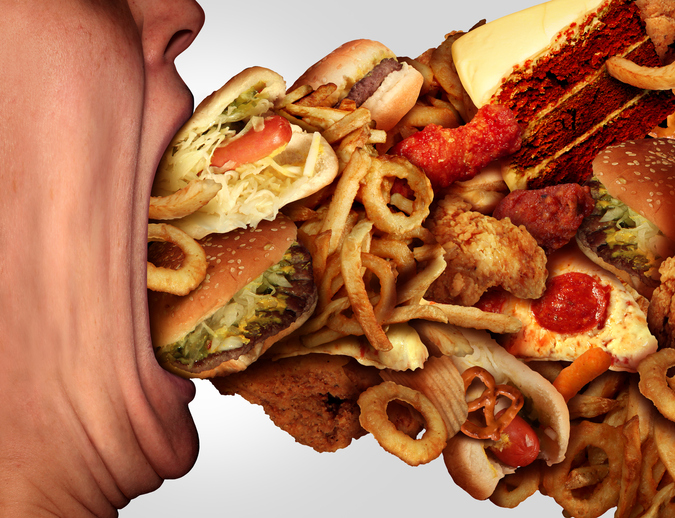You might have heard this word often, ‘binge eating’, and you never know if you’re a victim of the same. Read more to understand it
Most of us overeat at some point or other for different reasons. However, many of us overeat regularly and feel helpless about it. If this happens with you too, then you might be having binge eating disorder. Binge eating is an eating disorder when you feel to eat a lot frequently and cannot do anything about it. Moreover, once you are done, you feel distressed too. You might beat yourself up for your lack of self-control and feel guilty too.
When do we overeat?
Binge eating typically starts in late adolescence mostly after a major diet. While a binge, you might eat without being hungry and continue eating even after being full. At times, people also binge so fast that they cannot register what they are eating or what it tastes like.
Why do we overeat?
At first, binge eating is comforting. It seems as if it is helping to ease your unpleasant emotions or feelings of depression, anxiety or stress. However, later you end up feeling regretful. Weight gain and obesity are an outcome of binge eating. These in turn also reinforces compulsive eating. The more you feel stressed about your appearance and weight, the more you’ll use food to cope up with it.
It is important to know that binge eating is treatable and you can learn to break this vicious cycle of eating to feel better, feeling even worse and then turning to food for relief again.
Symptoms of Binge eating
Not everyone who binge eats acknowledges that they have this disorder, as they feel embarrassed and ashamed of doing so. But there are few signs to look at:
Behavioural symptoms:
- Hiding or stocking food for later consumption
- Eating despite being full
- Eating normally in front of others but gorging when alone
- Inability to stop eating
- Eating large amounts rapidly
- No planned mealtimes, eating throughout the day
Emotional symptoms
- Never feeling satisfied, despite eating too much
- Feeling stressed out which can be only relieved by eating
- Embarrassment on overeating
- Feeling numb while binge eating, as if you’re on auto-pilot
- Feeling depressed, guilty after overeating
- Desperate to control weight and control eating habits
How to recover from binge eating
Step 1: Develop a healthier relationship with food
Like any other addiction, recovery from binge eating is also challenging. However, unlike other addictions, your ‘drug’ is necessary for your living and you cannot completely avoid it. Therefore, you need to develop a healthier relationship with your food where food will only meet your nutritional needs and not emotional ones.
Step 2: Avoid temptations
Usually, when you overeat, you eat desserts, junk foods, and unhealthy snacks. You’ll have to remove these temptations by clearing your fridge and entire house with such foods.
Step 3: Listening to your body
You will have to start distinguishing between physical and emotional hunger. If you just had a meal and you’re stomach isn’t rumbling as of now, you are not really hungry. Just let the craving pass.
Step 4: Eat regularly
Do not starve yourself as it will only lead to overeating. Create an eating schedule and stick to it. Avoiding meals at their scheduled times often leads to binge eating. Also, try to include healthy fats in your meals as they keep you feeling satisfied and full. When you eat to feel the textures and tastes of the food that you’re eating. This will help you eat less and enjoy more.
Many people binge eat when they are bored. So next time you feel so, instead of snacking, listen to music, go out for a walk, do some gardening or other things you like. Distract your mind from food when you are bored.

